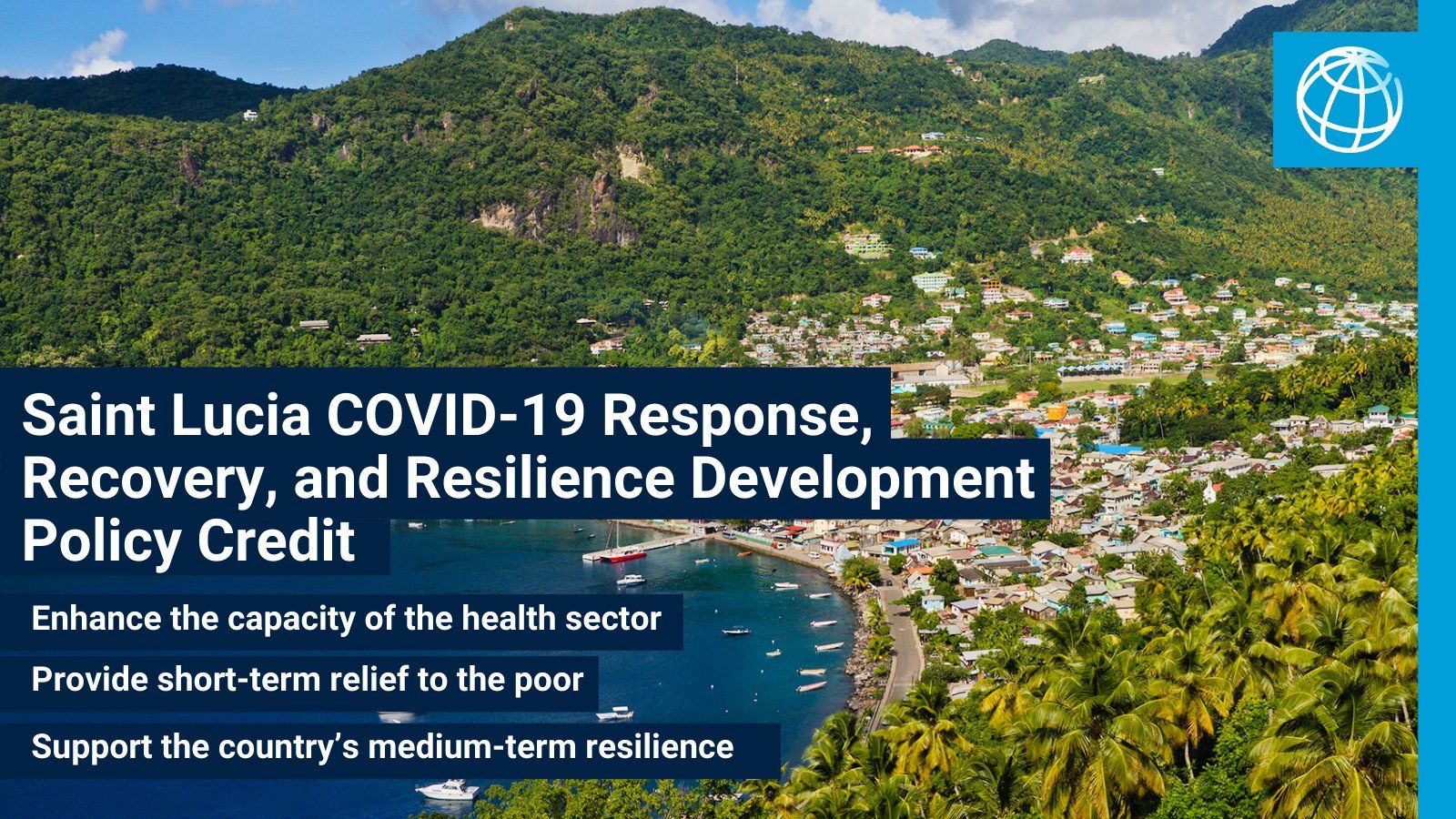World Bank Approves US$30 Million Credit for Saint Lucia’s COVID-19 Response, Recovery, and Resilience
Media Release Courtesy The World Bank
WASHINGTON — The World Bank Board of Executive Directors has approved the US$30 million Saint Lucia COVID-19 Response, Recovery, and Resilience Development Policy Credit. This quick-disbursing credit aims to help mitigate the negative economic impacts of COVID-19 on the most vulnerable Saint Lucians. It also aims to strengthen the country’s economic recovery from the COVID-19 crisis and enhance resilience to shocks in the medium term.
“The COVID-19 pandemic has had severe social and economic impacts on the Caribbean small states, especially those that are highly dependent on tourism like Saint Lucia,” said Tahseen Sayed, World Bank Country Director for the Caribbean. “This financing aims to provide Saint Lucia urgent support to protect lives and livelihoods and strengthen economic resilience.”
Saint Lucia’s GDP is projected to contract by 18 percent in 2020 due to the nearly complete halt in tourism. This World Bank financing is expected to help the government enhance the capacity of the health sector and provide short-term relief to the poor, small businesses, and the most severely affected workers. It supports measures to ensure business continuity and save jobs. The operation supports medium-term resilience through structural reforms to improve public financial management, procurement, and debt transparency. Resilience will also be enhanced through reforms related to financial resilience to disasters and education sector policies.
This operation is aligned with the Government of Saint Lucia’s reform program and COVID-19 response strategy. The financing, which is from the International Development Association (IDA), is interest-free with a maturity of 40 years, including a grace period of 10 years.
World Bank Group COVID-19 Response:
The World Bank Group, one of the largest sources of funding and knowledge for developing countries, is taking broad, fast action to help developing countries strengthen their pandemic response. We are increasing disease surveillance, improving public health interventions, and helping the private sector continue to operate and sustain jobs. Over the next 15 months, we will be deploying up to US$160 billion in financial support to help countries protect the poor and vulnerable, support businesses, and bolster economic recovery, including $50 billion of new IDA resources in grants or highly concessional terms.
